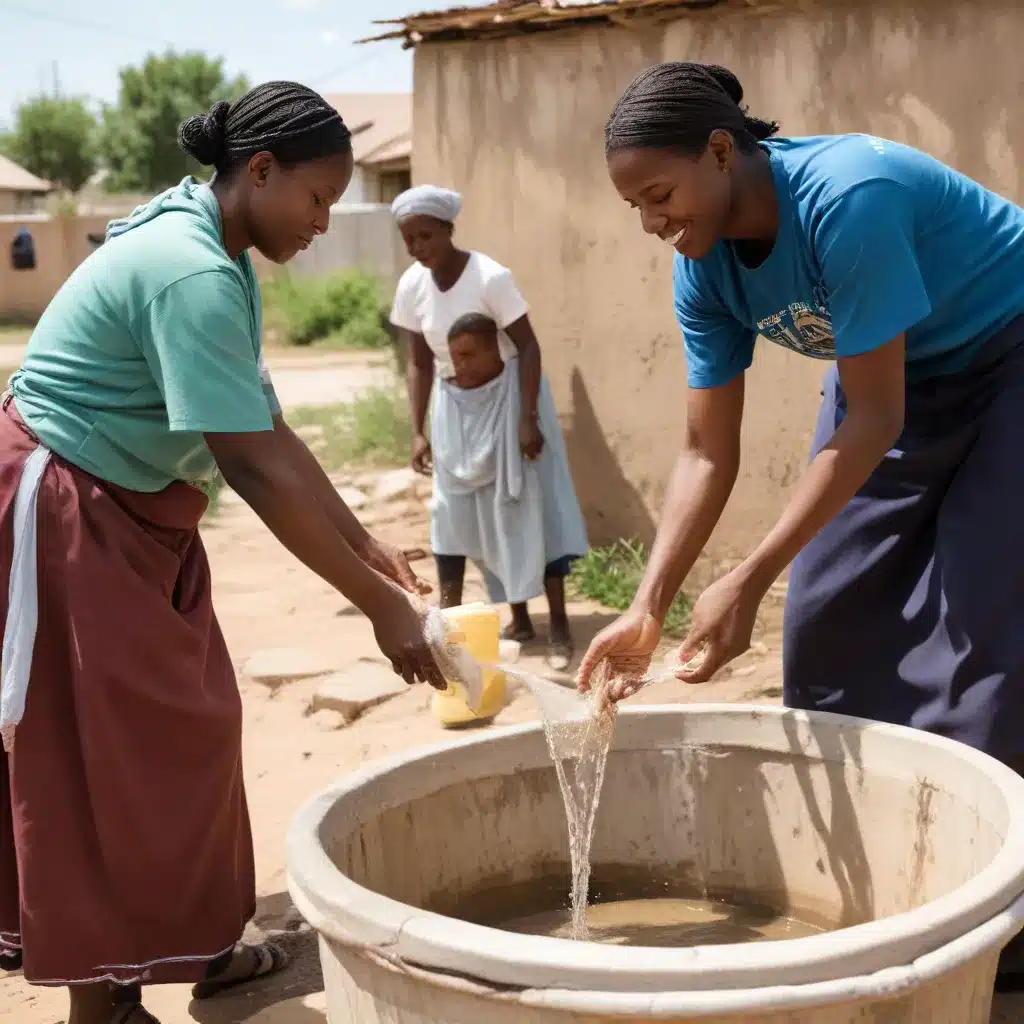
The Untapped Potential of Faith Communities in Driving Sustainable Development
In a world increasingly defined by rapid urbanization, growing inequalities, and pressing environmental challenges, the role of faith-based organizations in shaping more equitable and sustainable communities cannot be overstated. As traditional anchors of many communities, these institutions possess unique assets, convening power, and deep-rooted trust that can be leveraged to drive transformative progress in the water, sanitation, and hygiene (WASH) sector.
Bridging the Urban Service Gap
More than one-third of the world’s urban population, over 1.2 billion people, lack reliable access to basic services like clean water, sanitation, and electricity. This crisis is particularly acute in sub-Saharan Africa and South Asia, where in 2015 only 40% and 65% of the urban population, respectively, had access to improved sanitation.
Faith-based organizations are well-positioned to help identify these critical service gaps and ensure infrastructure investments and policies reach the most marginalized communities. By leveraging their deep roots and trusted relationships, they can:
- Provide communities with essential information on securing core services and facilitate engagement with local governments.
- Raise awareness about WASH-related policies and aid in their implementation, encouraging behavior change through the lens of religious principles and teachings.
- Partner with diverse stakeholders, including civil society, the private sector, and academic institutions, to map community needs and advocate for data transparency and accountability.
The Global Interfaith WASH Alliance (GIWA) in India exemplifies this approach. GIWA worked closely with Hindu, Muslim, and Sikh leaders to promote the Swachh Bharat Abhiyan, a nationwide campaign to eliminate open defecation and improve solid waste management. Faith leaders effectively linked cleanliness and sanitation to religious values, encouraging widespread toilet usage and handwashing among their followers.
Empowering Informal Workers
Informal workers, who make up over 60% of the global workforce, are often excluded from government plans and urban policies despite their crucial role in delivering essential products and services. Faith-based organizations can be instrumental in supporting these marginalized communities, given their established trust and social services.
By partnering with faith-based institutions, informal workers can gain access to:
- Legal protections, social benefits, and skills training programs
- Platforms to collectively advocate for their rights and improved working conditions
- Pathways to transition from the informal to the formal economy
In the favelas, or informal settlements, of Rio de Janeiro, Brazil, churches have played a pivotal role in providing critical services, from adult literacy courses to vocational training, to young people who might otherwise turn to organized crime. These faith-based initiatives effectively give marginalized youth an alternative path to employment, while also empowering the broader community.
Mobilizing Sustainable Investments
Faith-based organizations, with their substantial physical and financial assets, can serve as both recipients and providers of funding for sustainable WASH initiatives. By connecting communities with resources and leveraging their own investment potential, these institutions can catalyze community-led innovations and equitable, clean energy solutions.
The Shine Campaign, for example, mobilizes faith-based organizations and other investors to support sustainable energy partnerships in Latin America, Asia, and Africa. Participating faith leaders identify local needs and facilitate the development of locally owned, affordable clean energy assets that improve community livelihoods, such as solar-powered healthcare facilities.
Amplifying Community Voices in Urban Planning
Faith-based organizations can play a crucial role in elevating the concerns of marginalized communities within urban planning processes. By raising awareness, facilitating participation, and monitoring the social and environmental impacts of development plans, these institutions can ensure that the voices of the most vulnerable are heard and their needs are addressed.
The CNU Members Christian Caucus (CNU-MCC) in the United States is one such example. This affinity group of Christian urban planners developed a toolkit to support congregations in leveraging their resources to promote affordable housing and homeless services in their communities. The project empowered local churches to engage in urban planning processes and advocate for the inclusion of community priorities.
Fostering Interfaith Collaboration and Conflict Resolution
Faith-based organizations can bridge divides and facilitate coalitions of diverse stakeholders, including secular leaders, to tackle complex development challenges. By promoting dialogue, building understanding, and leveraging their convening power, these institutions can foster peace and reduce conflict within communities.
The Leaders of Influence (LoI 2) program launched by the Asia Foundation in Bangladesh is a prime example. The program convened Buddhist, Christian, Hindu, and Islamic leaders, as well as secular leaders, to discuss development issues and learn from successful grassroots organizing initiatives in other countries. This collaborative approach helped to alleviate suspicions between local communities and non-governmental organizations, while also enhancing the technical skills and efficacy of faith-based organizations.
Harnessing the Power of Faith for Holistic Community Wellbeing
For centuries, faith-based organizations have been at the forefront of providing critical community services, from education and healthcare to disaster relief and social services. As the world faces escalating climate, environmental, and social challenges, these institutions’ unique insights, assets, and deep-rooted connections with local communities make them invaluable partners in driving sustainable development.
The Arizona Faith Network’s Extreme Heat Cooling Center project, for instance, leverages the physical infrastructure and convening power of houses of worship to provide respite and support to vulnerable populations during extreme heat events. By tapping into the faith community’s resources and influence, this initiative has established a network of cooling centers across the Phoenix area, serving hundreds of people daily during the hottest months.
As the examples in this article illustrate, the potential of faith-based organizations to enhance water, sanitation, and hygiene initiatives, as well as broader sustainable urban transformations, remains largely untapped. By recognizing and empowering these institutions as key partners, development practitioners, local governments, and civil society can unlock new pathways to create more equitable, resilient, and thriving communities.
To explore ways of collaborating with faith-based organizations on your WASH or sustainable development initiatives, we encourage you to visit the Joint Action for Water website or reach out to the team. Together, we can harness the power of faith to build a better future for all.

